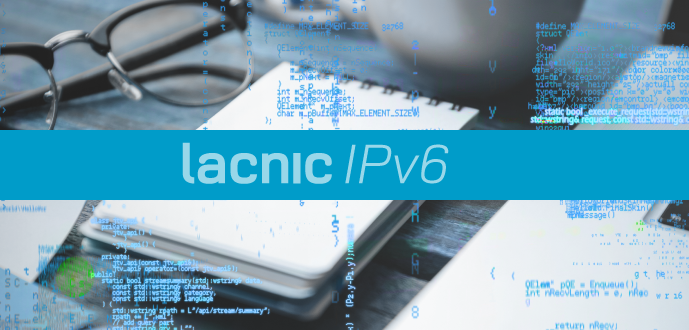Winner of the 2019 IPv6 Challenge: “Deploying IPv6 is Worth the Time and Effort”
28/11/2019

The project submitted by Chilean company Simeon for the deployment of IPv6 services in Nervicom, a Venezuelan ISP, was named the winner of the latest edition of LACNIC’s IPv6 Challenge.
José Gregorio Cotúa of Simeon and the person responsible for the plan observed that their participation in the competition organized by LACNIC accelerated the process and served as a stimulus that helped them achieve their goals more quickly.
The expert was surprised by the lack of awareness among regional operators regarding the drastic consequences of IPv4 address exhaustion on the Internet business. “What they seem to ignore is that failure to deploy IPv6 means the end of the Internet business,” Cotúa said.
Why did you decide to participate in LACNIC’s IPv6 Challenge?
We learned of the Challenge through an email from Alejandro Acosta of LACNIC. Precisely at that time, we were preparing our plan to deploy IPv6 on the platform of Nervicom, a Venezuelan ISP. We felt that participating in the IPv6 Challenge would motivate and encourage us to advance in the work we were beginning to plan and execute, and it was an excellent way to compare our work on IPv6 to how things are being done it in Latin America and the Caribbean. We also wanted to explore and learn more about best practices for IPv6 deployment.
What are your key takeaways from the process of participating in this challenge?
Simply participating in the competition required us to maximize our efforts and give our best in our work, researching and exploring best practices, techniques, protocols and applications that can be used for the successful deployment of IPv6 in the platform of an ISP. I believe this was the most important lesson we learned: our search, understanding and furthering of the paradigms involved in IPv6 deployment and having conclusively demonstrated that it is possible to fully deploy IPv6 on an ISP’s platform. Last but not least, having furthered our knowledge of IPv6 in GNU/Linux networks, both at the server and at the end user levels.
Can you describe the initiative for which you were awarded the first prize? How many people were part of your working team?
The initiative for which we received the first prize was the IPv6 deployment undertaken by SIMEON (Chile) in the core and transport networks of Venezuelan ISP NERVICOM. The working team consisted of a project manager and technical leader, José Gregorio Cotúa of SIMEON; the CEO of NERVICOM; Alejandra Caraballo of SIMEON as deployment and monitoring and documentation coordinator; Héctor Flores, NERVICOM operations manager, as head of validation and testing, and NERVICOM technicians whose contributions were priceless in terms of their support and system checks.
What would be your recommendation to organizations looking to deploy IPv6 in their networks?
That they should approach their participation in the IPv6 Challenge as a project and that they should manage it as such. In other words, they should define the scope of their participation, plan and define their time line, define the quality they wish to achieve, manage the costs and the risks involved, and consider the other aspects typical of a project: communications, human resources, procurement and integration. That the quality of the documentation is essential for the success of the project. That deploying IPv6 is worth the time and effort because it provides a lot of value. Finally, that the most important goal of participating in the Challenge should not be to win the competition but to learn, research and achieve a quality IPv6 deployment. Winning should be a consequence, not a cause.
What are the main administrative and technical difficulties your organization had to face to deploy IPv6?
While NERVICOM has already received IPv6 address space, organizations that have not been assigned any IPv6 addresses can request them from LACNIC. As for technical difficulties: Mikrotik devices do not yet fully support IPv6, and in GNU/Linux certain apps do not operate in IPv6-only mode (they continue to listen on IPv4 even when this option is disabled).
Do you think the region is truly aware of IPv4 exhaustion and the need to adopt IPv6 to sustain the current Internet model?
Personally, I believe that this awareness does exist and, as such, people know about IPv4 exhaustion. However, I believe there is little or no awareness about the consequences that this has. In other words, many people believe that even if IPv4 addresses become exhausted at LACNIC or ARIN (something that has already happened), they will somehow be able to continue to operate, either using their ISP’s IP addresses, by deploying NAT, etc. From this perspective, I believe that LACNIC has a great challenge that goes beyond disseminating the issue of IPv4 exhaustion and the new paradigms of the IPv6 protocol: I think LACNIC should attempt to disseminate the consequences of IPv4 runout and why it is so important to transition to IPv6 as soon as possible. Consulting firms, in this case SIMEON of Chile, are working in this direction.